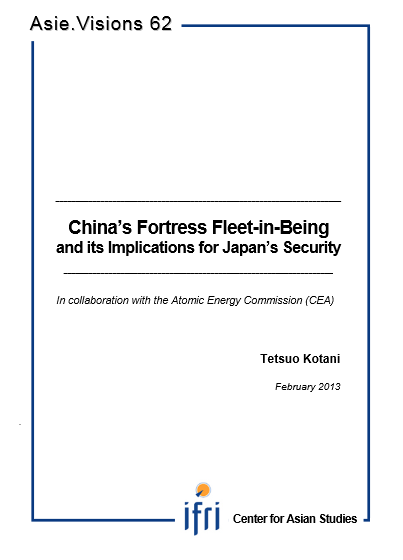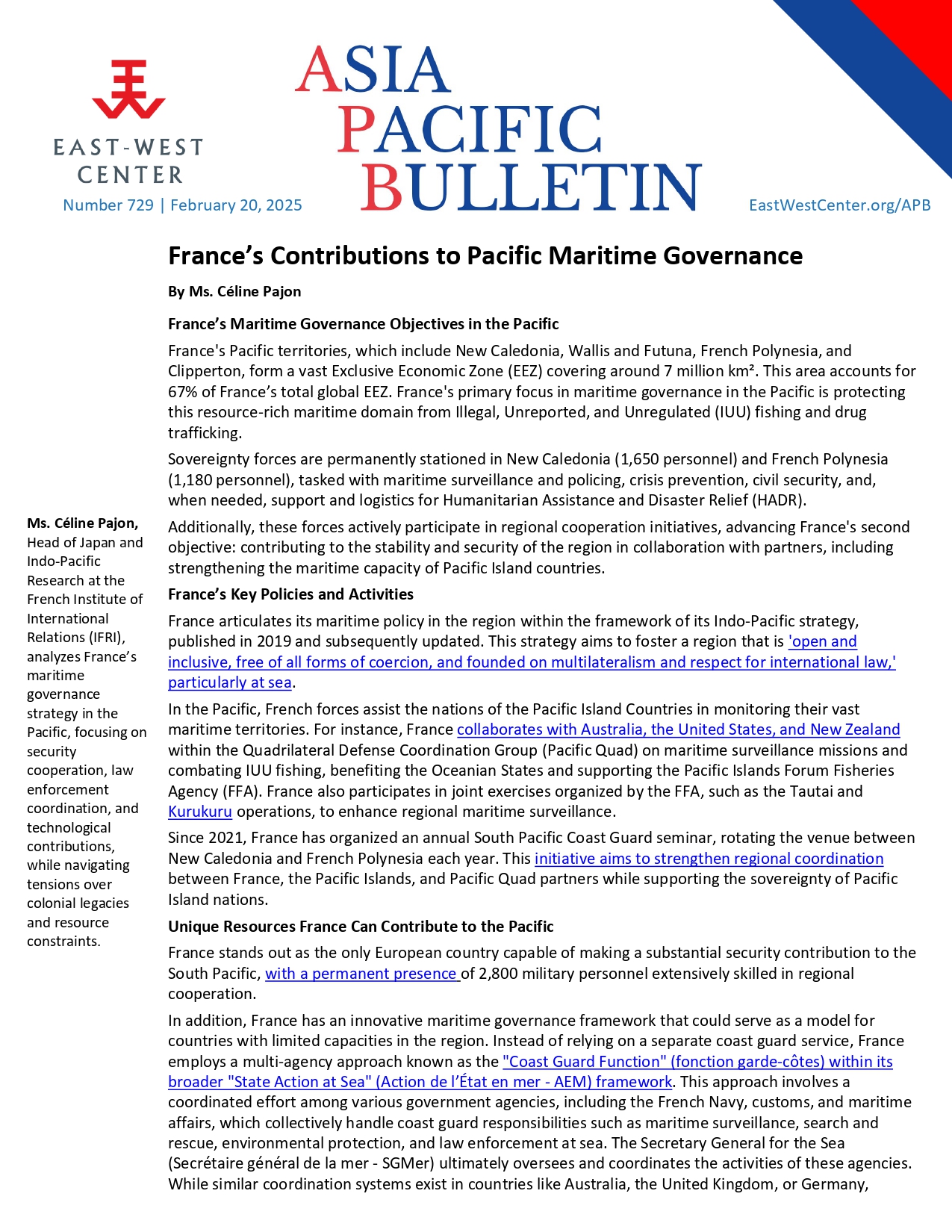China's Fortress Fleet-in-Being and its Implications for Japan's Security

This paper analyzes the rise of maritime China and its implications for Japan’s security policy.
In recent years, Chinese naval capabilities have been growing. Beijing aims to expand its maritime presence in the region, but also to limit the access of other fleets - primarily the US Navy - to its nearby waters. This Chinese anti-access/area-denial approach is analyzed here through the concepts of fortress fleet and fleet-in-being. Tokyo has reinforced its deterrence capability toward Chinese naval activities by setting up a more “dynamic defense” and concentrating efforts to protect its southwestern border. In addition to Japan’s efforts, the reinforcement of the alliance with the United States in the context of the American rebalancing toward Asia is also a major element in providing an effective response to Chinese maritime expansion. Despite his hawkish rhetoric, Japanese Prime Minister Shinzo Abe would not change Japan’s security policy dramatically but rather seek communication with Beijing in order to ensure crisis management.

Available in:
Regions and themes
ISBN / ISSN
Share
Download the full analysis
This page contains only a summary of our work. If you would like to have access to all the information from our research on the subject, you can download the full version in PDF format.
China's Fortress Fleet-in-Being and its Implications for Japan's Security
Related centers and programs
Discover our other research centers and programsFind out more
Discover all our analysesJammu and Kashmir in the Aftermath of August 2019
The abrogation of Article 370, which granted special status to the state of Jammu and Kashmir (J&K), has been on the agenda of the Bharatiya Janata Party (BJP) for many decades.

France’s Contributions to Pacific Maritime Governance
France stands out as the only European country capable of making a substantial security contribution to the South Pacific, with a permanent presence of 2,800 military personnel extensively skilled in regional cooperation.
Unlocking India’s Energy Transition: Addressing Grid Flexibility Challenges and Solutions
India is rapidly scaling up its renewable energy (RE) capacity, adding 15–20 GW annually, but the ambitious goal of 500 GW of non-fossil capacity by 2030 is at risk unless the pace accelerates.

The China-Russia Partnership and the Ukraine War: Aligned but not allied
China and Russia maintain a strategic partnership rooted in shared opposition to the U.S. and liberal democracies, but their relationship is shaped more by pragmatism than trust.








